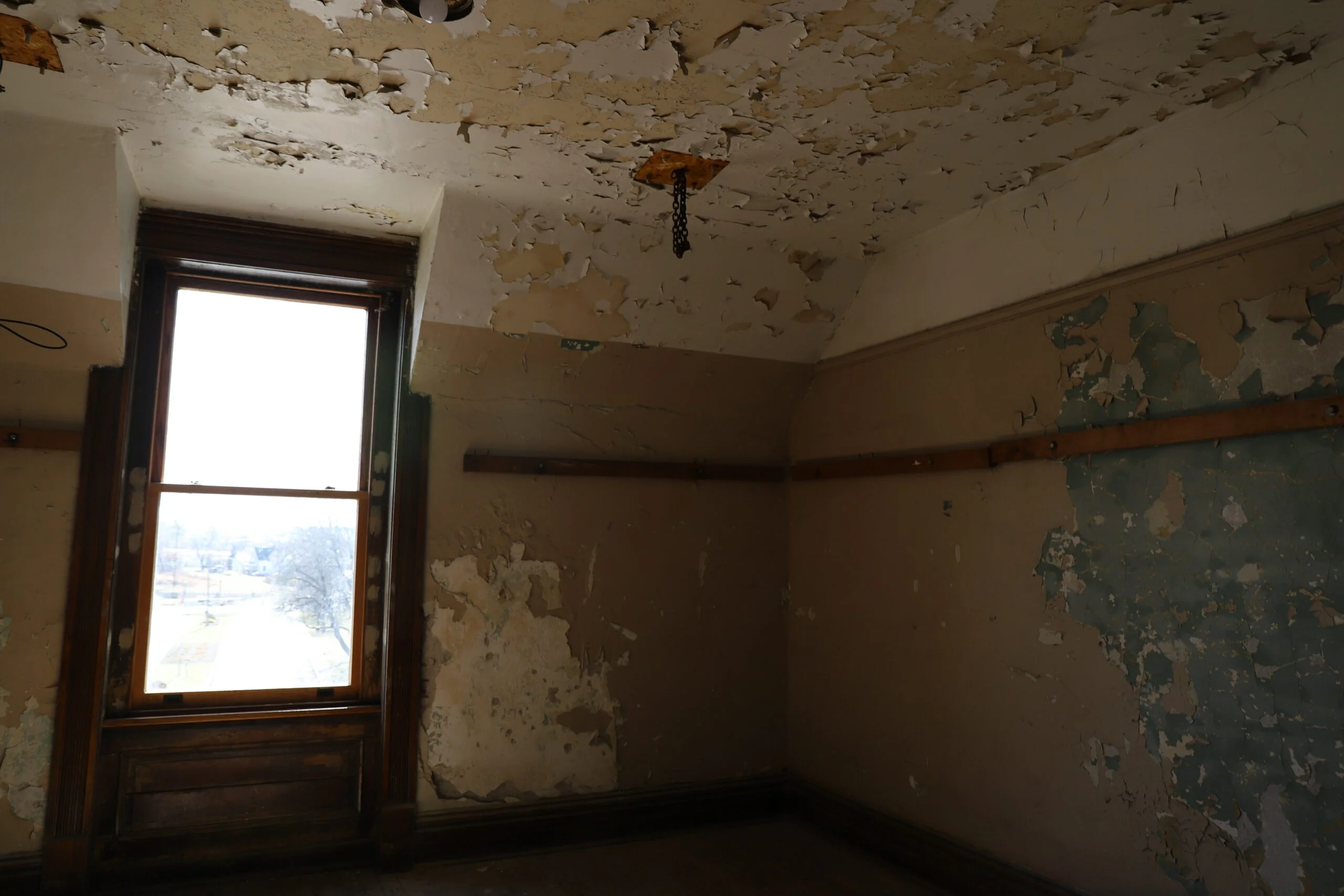
At New Western, our vision is a world where every real estate transaction is simple, certain, and satisfying. Therefore, we promote strict editorial integrity in each of our posts.
In the United States, 35.9% of households are occupied by renters, and 21% of those renters have roommates! Despite being able to save $517 per month by living with someone, the question, “Can one person break a two-person lease?” isn’t that uncommon.
People will move for various reasons – many of which move to find more affordable accommodations. Right now, 54% of renters spend more than the recommended 30% of their income on rent.
What’s worse is that 25% of renters spend more than 50% of their income on rent.
When you consider that rent in 50 of the largest cities in America has increased 175% faster than household income, it’s no surprise that for many Gen Z and Millennials, the prospect of owning a home may feel like a foregone dream.
If you have a roommate and want to move out before the lease is up, read this article in its entirety before making any decisions.
It is a legally binding contract between the tenant(s) and landlord when you sign a lease. If the lease is illegally broken before the contracted date, it has serious consequences.
These may include:
Note: The actual penalties will depend on your state’s laws regarding a tenant’s rights to break a rental agreement. You can find your state’s laws on NOLO.com.
So, what are the justifiable (and legal) reasons you could break a lease without facing negative consequences?
A landlord is legally responsible for maintaining the property so that it doesn’t become a health or safety hazard. For a rental to be suitable for human habitation, the landlord must provide:

For the lease to be broken, for this reason, the landlord disregards the tenant’s rights to privacy or inhibits the tenant’s ability to enjoy their rental in peace. This means that the landlord cannot enter the rental without giving the tenant adequate notice.
Find out the amount of notice required in your state here.
Also, a tenant can break a lease if the landlord is harassing them or if they’ve complained about other tenants and the landlord has ignored those complaints. This is tricky, so contact the landlord/tenant attorney for advice. If you think your landlord has violated your right to quiet enjoyment, contact the landlord/tenant attorney for advice.
As active-duty military personnel, you can break your lease without penalty. A tenant who receives deployment orders must give the landlord notice of their intent to leave and a copy of their deployment orders.
Many states allow victims of domestic violence to end a lease without being penalized after giving adequate notice (usually 30 days). Keep in mind that most of these states will require you to provide proof, such as a protective order, noting their status as victims of domestic violence.
Some states may allow tenants to break their lease early if they face a severe physical or mental health issue. Unfortunately, this isn’t permissible in many states, so consulting a landlord/tenant attorney is advisable.
Modern lease agreements include specific language that would allow a tenant to end the lease early – which will incur a penalty fee. This sometimes equates to two months’ rent and requires adequate notice (at least 30-days).
If the lease does include an early termination clause, make sure you read it thoroughly and ask the landlord about conditions that would negate the penalty fee if you were to leave early.
At the time, the thought of living with a friend sounded like the ideal agreement because you enjoy their company and you can save money. This kind of lease is designed so that both parties are responsible for following the lease terms.
These responsibilities include (but are not limited to) paying their portion of the security deposit and paying a percentage of the rent. But what do you do if someone wants to leave before the lease?
Before any action is to be taken, you need to ask yourself a few questions:
A roommate agreement is not the same as a lease – it is a legally binding contract between the tenants of the rental unit. The agreement should outline the rights and obligations of each tenant, as well as house rules that all tenants agree to.
While your roommate agreement needn’t be as meticulous as Sheldon’s, it should cover the basics such as:
You can find a basic roommate agreement here, or you could create your own.
Your landlord may review the rent-to-income ratio to see if the remaining tenants can afford the monthly payments. If you decide to stay in the rental unit, be aware that you will be expected to pay the total amount of the monthly rent.
You can figure out your rent-to-income ratio using this equation:
For this example, the RTI is 26%, below that ideal 30% ratio for rent. Now, if the total combined gross monthly income for two tenants was $4,500 and the tenant that stays only brings in $3,000, the new RTI will look like this:
The new RTI is 40%. As the remaining tenant, you might feel like you can still afford rent. But when lifestyle, existing bills, groceries, and other expenses are factored in, staying in the rental may not be an option.
There is a work-around that your landlord may be open to, and that is to look for another roommate. The new roommate will need to complete an application fee (if applicable), credit check, and background check.
Keep in mind that before going out and finding a new roommate on your own, you’ll need to speak to the landlord and get their consent.
If you’re unable to stay in the rental because you do not make enough to cover the rent on your own, you might need to talk to your landlord about your options. If your RTI is over 50%, allowing you to break the lease early is a win-win for both you and the landlord.
On the flip side, if you know that you cannot afford to pay the rent but refuse to leave, the landlord has the right to evict you. Remember that eviction on your record will make it more difficult to find a rental in the future.
Each state has its laws regarding residential evictions, but the proceedings usually follow a similar process.
The landlord can hire a collections agency to collect past due rent and court costs incurred by the eviction process. In some instances, a tenant’s wages may be garnished until debts have been settled.
If you’ve signed a joint lease but want to break the agreement early, you can’t pack up and move out when the mood strikes. You have to be respectful to your roommate and your landlord.
Getting your name removed from the lease will be a little tricky, but it can be done. Here are four things you’ll need to do to (or try to) break a two-person lease.
First and foremost, you need to talk to your roommates and inform them of your plans. You need to clue them in, but you’ll also need to be empathetic because wanting to move out is a big bombshell to drop on someone, especially if the news comes out of the blue.
When you talk to your roommates, try to give them as much notice as you can so they can figure out what they need to do. You’ll also need to get their written permission for the landlord to create another lease without your name on it.
After speaking with your roommates, you’ll need to speak to your landlord. Keep in mind that a landlord doesn’t have to remove your name from the lease; everyone agreed to the terms when the lease was signed
However, if you go to your landlord and explain the situation, they may grant your request. When you’re pleading your case, you have to be respectful and apologize for the inconvenience.
You’ll want to inform the landlord that you’ve spoken to your roommates, and they’re okay with the situation. You can present the letter your roommates signed and even go so far as to offer to pay a penalty fee for breaking your agreement.
Note: If your landlord agrees to anything, make sure you get it in writing and get a receipt if you wind up paying a penalty fee.

One way to soften the blow for all involved you can offer to find someone to take your spot. Your roommates won’t have to pay more in rent, and your landlord can rest a little easier knowing the rent will be paid.
When you’re looking for a new roommate to take your place, look for someone the others will get along with – a mutual friend is ideal. If you don’t have a mutual friend who can take your place, look for someone who:
Remember that while you may find someone who will take your place, that doesn’t mean the landlord has to approve them. If the landlord doesn’t agree to put them on the lease, you may have to go back to square one with your search.
As much as we want to believe these types of situations are easy enough to settle, that isn’t always the case. If neither the roommates nor the landlord agrees to remove you from the lease, you may need to seek legal advice.
Seeking legal advice and potentially hiring an attorney will be an additional cost that you need to plan for. Yet, it may be worth it if you’re in a bind and the attorney can find an out for you.
After everything has been worked out between all parties involved, you’ll need to confirm the changes to the new lease. The new lease should include people living in the rental unit, both the existing tenants and the new person who’ll be moving in to take your place.
If your landlord modifies the existing lease to remove your name and add the new tenant, you need to be aware that your roommates may try to get rent that you originally agreed to pay. If that were to happen, an attorney might need to get involved.
In the worst-case scenario and the landlord refuses to do anything, you’ll need to carefully weigh your options and ask yourself if you can wait until the end of the lease or feel confident that your former roommates won’t act recklessly after moving out.
Although a two-person lease is legally binding, breaking the contract and leaving early is possible. It’s not going to be a walk in the park, to be sure, but you aren’t stuck.
The options you have may not be the best, especially if your roommates and landlord aren’t interested in working with you to resolve the matter amicably. Sometimes you may have to suck it up and pay penalty fees.
On the flip side, if you’ve been thinking about investing in a rental property, if you’re considering buying a house with tenants, or if you’re considering renting a primary residence, New Western can help.
New Western is a great way to find the best off-market properties in your area. To begin the process, all you need to do is fill out a short form, and within 48-hours, a New Western representative will reach out to schedule a meeting to discuss your goals and options available!
{
“@context”: “https://schema.org”,
“@type”: “BlogPosting”,
“mainEntityOfPage”: {
“@type”: “WebPage”,
“@id”: “https://www.newwestern.com/blog/can-one-person-break-a-two-person-lease/”
},
“headline”: “Can One Person Break a Two-Person Lease? What’s the Deal?”,
“description”: “It is a legally binding contract between the tenant(s) and landlord when you sign a lease. If the lease is illegally broken before the contracted date, it has serious consequences. If you have a roommate and want to move out before the lease is up, read this article in its entirety before making any decisions.”,
“image”: “https://www.newwestern.com/cache/images/shutterstock_1109613101-scaled-1-undefined.webp”,
“author”: {
“@type”: “Person”,
“name”: “Evette Zalvino”,
“url”: “https://www.newwestern.com/content-council/evette-zalvino/”
},
“publisher”: {
“@type”: “Organization”,
“name”: “New Western Acquisitions”,
“logo”: {
“@type”: “ImageObject”,
“url”: “https://www.newwestern.com/assets/nw/nw-mark-gold.svg”
}
},
“datePublished”: “2022-05-04”
}
Disclaimer: The information provided on this website does not, and is not intended to, constitute legal advice; instead, all information, content, and materials available on this site are for general informational purposes only.